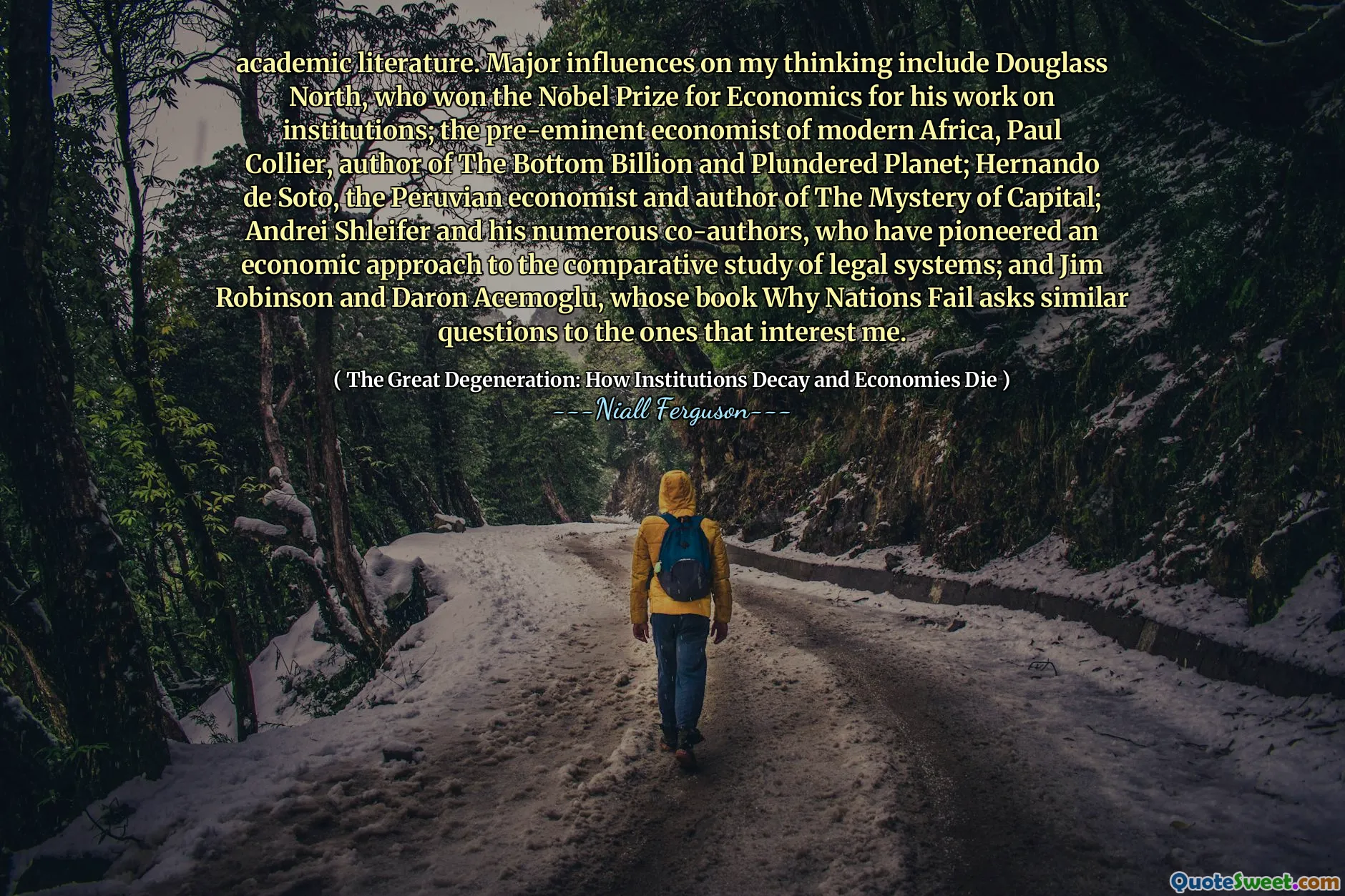
academic literature. Major influences on my thinking include Douglass North, who won the Nobel Prize for Economics for his work on institutions; the pre-eminent economist of modern Africa, Paul Collier, author of The Bottom Billion and Plundered Planet; Hernando de Soto, the Peruvian economist and author of The Mystery of Capital; Andrei Shleifer and his numerous co-authors, who have pioneered an economic approach to the comparative study of legal systems; and Jim Robinson and Daron Acemoglu, whose book Why Nations Fail asks similar questions to the ones that interest me.
My intellectual development has been shaped by several key figures in economic thought. Notably, Douglass North, a Nobel laureate, has greatly influenced my understanding of the role of institutions in economic progress. I have also learned from Paul Collier, whose works address the challenges faced by modern Africa, and Hernando de Soto, who explores property rights in his well-known book. Their insights into how legal and economic frameworks affect development have been pivotal in shaping my perspective.
Moreover, the comparative economic analysis of legal systems by Andrei Shleifer and his collaborators has provided a valuable lens through which to study the interplay between law and economics. Additionally, Jim Robinson and Daron Acemoglu's inquiry into the reasons behind national success or failure has resonated with my own research interests. In "The Great Degeneration: How Institutions Decay and Economies Die," Niall Ferguson underscores the critical link between institutional health and economic vitality, reinforcing the importance of strong institutions in achieving prosperity.











